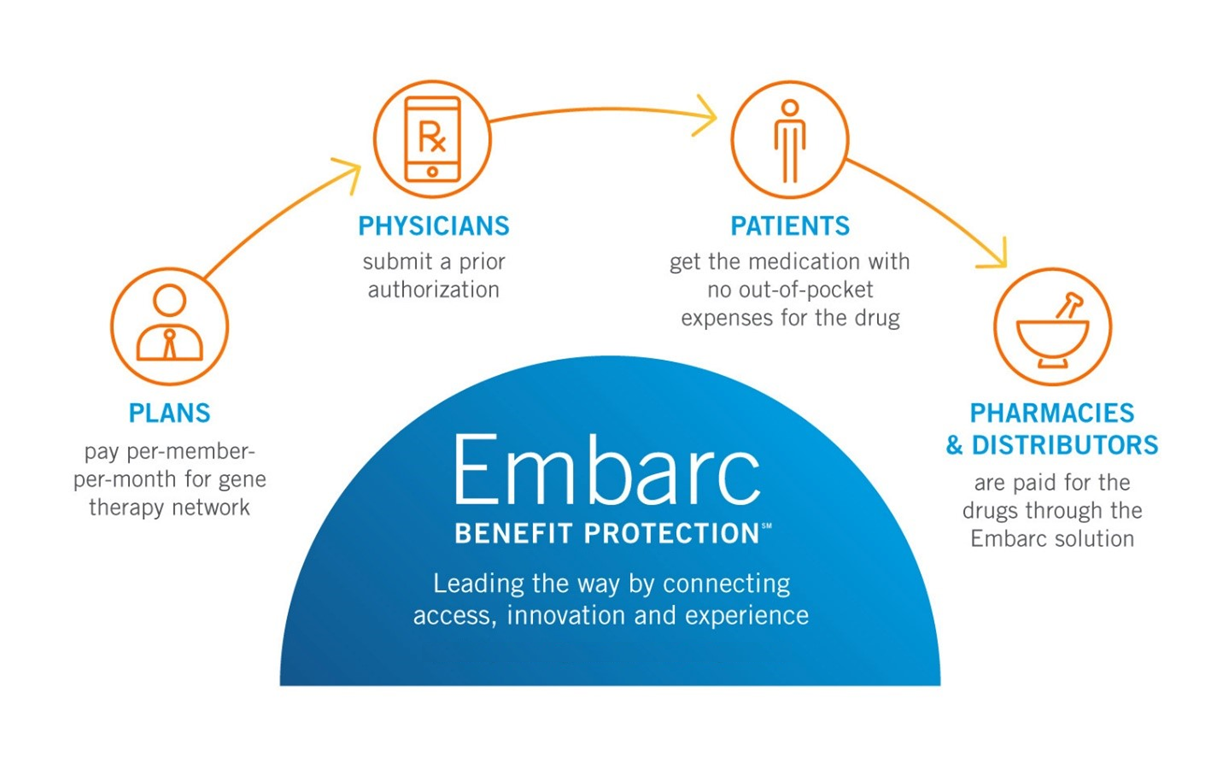
The COVID-19 pandemic has forced many people to pause and think about what is truly important to them—particularly when it comes to their workplace culture. Some are calling it the “Great Resignation,” and it has thrown employee health and well-being into the limelight.
And rightfully so: Research finds that healthier employees are more productive, engaged, and committed to their work, which drives better business outcomes for employers.
“The reality is that clients increasingly recognize that having a healthy, vital workforce is critical to fueling healthy business growth."Mike Triplett, president of Cigna's U.S. commercial business
There are four key areas where a health plan can contribute to a business’s growth strategy:
- Ensure financial health: Predict and manage financial risk for your company and employees while optimizing cash flow and improving profitability. And, help your employees manage and control their health-related finances.
- Engage individual employees: Improve productivity and health outcomes by guiding employees to the most effective, convenient and cost-appropriate care, at the right place, at the right time.
- Nurture a healthy work culture: Establish and maintain healthy practices that reduce stress and burnout while boosting productivity, engagement and retention.
- Prepare for the future: Continuously innovate to address the health challenges of today and tomorrow.
"Cigna works with clients to help them turn their health plan into a growth plan; one that is able to attract and retain talent by addressing each of these four growth-related areas," Triplett added.
Ensuring Financial Health
The average cost of employer-sponsored health insurance per employee jumped 6.3% in 2021, according to HR consultancy Mercer's 2021 National Survey of Employer-Sponsored Health Plans report. And the costs for families and individuals have increased 22% over the last five years and 47% during the previous 10 years.
When choosing an insurance plan, employers need to ensure that the health plan is committed to affordability and reducing costs for both plan sponsors as well as patients. Cigna's Health Plan, for example, has a number of different programs in place to help reduce costs, particularly around specialty medications and sites of care.
Specialty medications represent just 2% of prescriptions, but they account for more than half of total pharmacy spend, driven largely by biologic medicines for inflammatory conditions and new treatments for cancer and rare diseases. These specialty medicines, while life-saving and life-changing, can also be financially devastating.
Cigna's Embarc Benefit Protection program, launched back in 2019, is aimed at making specialty medicines more affordable and accessible for those who need it. Consumers who are covered have no out of pocket payments related to the cost of these medicines and receive personalized expert care to assist them through their health journey, and organizations that enroll will be protected from the price shock of high-priced medicines such as gene therapies. Clients simply pay a flat per member, per month (PMPM) charge.

Engage Individual Employees
Companies should choose a health plan committed to improving health outcomes by guiding employees to the right quality care, at the right place, at the right time. This ensures a seamless care experience for patients that is safe and effective, while also driving down costs for patients and plan sponsors alike. According to research from AHIP, the cost to patients and their health plans is particularly high when specialty drugs are administered in a hospital setting.
“The medical field has grown up with the idea that the hospital is the main site of care—a place where all treatment had to happen.”Dr. Andrew Lasher, chief medical officer at IVX Health, a company that operates more than 50 infusion centers in the U.S.
"However, over the last 5-10 years, there’s been a shift in which we’ve realized that many of the things we have historically done in a hospital can perhaps be better done somewhere else,” Dr. Lasher said in a previous interview with Cigna.
At Cigna, we know that specialty medications treat some of the most costly conditions. Because they are often injected or infused, they require administration by a health care professional, making these drugs extremely complex and expensive to manage. Understanding that costs can vary widely among different care settings, managing specialty medication expenses across all channels of administration is a key focus for us.
Cigna's Specialty Care Options team, comprised of medical directors, pharmacists, case managers, and care associates, work together to assess the care options available to each patient, and decide which setting will offer high quality care and service, at a lower cost. When clinically appropriate, we suggest the less expensive site of care such as an infusion center vs. a hospital setting.
Here’s how it works. James is an actual Cigna customer with malignant neoplasm (a cancerous tumor) in the lower stomach. His doctor ordered an Opdivo infusion every two weeks in the outpatient infusion department of the local hospital. Cigna’s Specialty Care Options Case Manager stepped in to locate a more affordable option. The case manager collaborated with James and his doctor to arrange infusions at a local infusion center. This center is only few blocks from the hospital so James can easily continue to follow up on the same day with his provider or if any additional lab work is needed. This saves James’ employer over $100,000 over the course of just six months of treatment. (More case studies like James’ here.)
The Specialty Care Options program is part of our enhanced utilization and case management programs, and is included within Cigna’s core medical management offering. It comes at no cost to plan sponsors.
Nurture A Healthy Work Culture
Today’s businesses should establish and maintain healthy practices that help their workforce reduce stress and burnout while boosting productivity, engagement and retention. Research shows that a strong wellness program can make a lasting impact. Consider the following stats from an Economist Impact study commissioned by Cigna:
- 70% of employees claim that wellness programs have helped them manage their health.
- 89% of employees will recommend their company as a good place to work if the company supports well-being initiatives.
- 86% of employees reported improved work performance and lower rates of absenteeism after receiving treatment for depression.
At Cigna, we have a number of solutions that help employers build healthy work cultures. For example, we offer wellness seminars that address all dimensions of physical, emotional and financial health. We also offer on-site services to support your business locations needs for care to be delivered on or near your place of work, and we work with companies to help them reimagine their well-being programs.
For example, when COVID-19 began to spread throughout the United States, David Evans and Associates (DEA), a Cigna client, began to see lower engagement levels with its employee well-being program. The company had been using Cigna's MotivateMe well-being framework, which rewards employees for the healthy actions they take. Employees reported that the program was no longer influencing their physical wellness, and that they were just “checking the boxes.” Additionally, the wellness program was mainly focused on physical health, and people were looking for more holistic support.
Cigna's health engagement team stepped in to help DEA reimagine its wellness program for employees with a focus on the more holistic concept of whole-person health, which includes:
- Physical – Having healthy behaviors (sleep, physical activity, healthy diet) that result in strength and energy from your body and mind.
- Emotional – An ability to identify, assess and express a full range of emotions and authenticity.
- Financial – The ability to assess and manage personal financial commitments and goals, and to absorb a financial shock.
- Career – A feeling that you are growing and progressing in your career.
- Community – Connection with others and a feeling of belonging, acceptance and support.
Participation and engagement in the new well-being program has been high, according to DEA, with an estimated 70% of employees having engaged with the well-being program since its relaunch last year. (Read the full DEA case study) Engaged employees, according to research, are more efficient and more productive.
Prepare for the Future
When choosing a health plan, businesses need to find a partner that continuously innovates with an eye towards the future. Enter Cigna Ventures, the strategic venture fund of Cigna Corporation. The team partners closely with entrepreneurs who share Cigna’s tenacity to unlock bold new opportunities to improve people's health and make health care more affordable, simple, and predictable.
"We ultimately look to partner with entrepreneurs to accelerate our strategy and bring innovation into the organization by becoming strategic partners with the companies that we deploy capital with."Tom Richards, senior vice president and global leader of strategy and business development at Cigna
To ensure that we are positioned for the next wave of personalized, digital, and seamless health care experiences, Cigna has recently announced an additional $450 million capital investment in Cigna Ventures to drive continuous health care transformation, innovation, and growth.
“The $450 million commitment by Cigna enables us to drive innovation beyond our existing core business operations, and incubate new ideas, opportunities and relationships that have the potential for long-term business growth and to provide value to our customers, clients and providers.” Richards said.
Cigna Ventures will use this new funding to continue to invest in companies that are making groundbreaking progress across three primary pillars: insights and analytics, digital health and experience, and care delivery and enablement. Innovations in these areas will help us to anticipate market trends more quickly, get ahead of opportunities, and better serve our clients and customers.

Your New Growth Plan
We’re at a pivotal time in business. Pre-pandemic, most businesses considered health benefits a cost to be managed, and little more than that. But the value of health benefits is rapidly changing – and organizations both big and small need to keep up.
Cigna has the expertise to help organizations transform their health benefits from an expense to an investment, helping business and their people flourish. After all, healthy employees = healthy business.

Employee Health is Your New Growth Plan
Browse through our thought leadership content and resources on what it is going to take to attract and retain top talent in the future of work.


